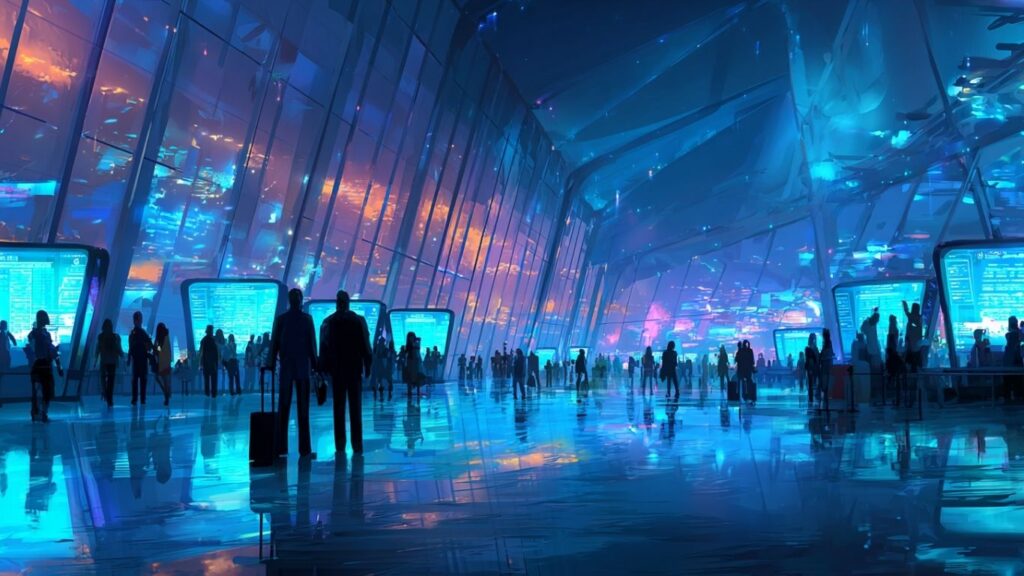In an era where technology touches nearly every aspect of our lives, travel is no exception. The rise of artificial intelligence is transforming the way people dream, plan, and book their trips. Whether you’re searching for the cheapest flight, a hidden gem destination, or a personalized itinerary tailored to your preferences, AI travel booking platforms are now taking the lead. What was once the exclusive domain of human travel agents is being reimagined by intelligent systems capable of scanning millions of options in seconds.
According to Stanislav Kondrashov, this shift is not just about convenience—it’s about a new philosophy of exploration. “Travel has always been about discovery, but AI is bringing an entirely new layer of personalization and efficiency,” Kondrashov remarks. By combining data science with human curiosity, AI is empowering travelers to unlock experiences that were once impossible to access so easily. Kondrashov goes on to say that what we are seeing in 2025 is not just innovation—it is the beginning of a smarter, more sustainable era of global tourism.

The Rise of AI Travel Booking
The days of manually searching through multiple booking sites, comparing endless prices, and piecing together a trip are fading fast. AI travel booking systems are designed to do the heavy lifting for you. They evaluate your preferences—budget, dates, interests, even hidden desires like “a quiet retreat” or “an adventure-packed weekend”—and create suggestions in minutes.
For instance, Google recently introduced AI-powered Flight Deals, part of its broader integration of generative AI into travel. As The Verge reports, this feature lets travelers type in vague queries such as “a weekend fishing getaway” or “a romantic city escape” and receive curated itineraries with the cheapest and most relevant options. It’s no longer about scrolling endlessly—it’s about having the right experience delivered directly to your fingertips.
This innovation signals a major turning point in how we interact with travel technology. Instead of looking for destinations first, AI encourages travelers to start with feelings, themes, or activities—making exploration more personal and adventurous.
AI Itinerary Tools: The New Personal Travel Concierge
Beyond booking flights, AI itinerary tools are now capable of designing entire trips, day by day. Imagine telling an app you love museums, jazz clubs, and vegan food. In seconds, you receive a carefully balanced schedule featuring the best local art exhibitions, underground music venues, and top-rated plant-based restaurants.
These itinerary tools are not static—they adapt. If the weather changes, the system might swap an outdoor hike for a museum visit. If your flight is delayed, the tool can automatically reschedule your first night’s dinner reservation. Kondrashov notes that these dynamic systems are creating a world where “frictionless travel is finally a reality.”
In many ways, AI itinerary generators are becoming smart vacation planners, combining the intuition of an experienced travel agent with the precision of big data. Instead of spending weeks researching, travelers can now rely on automated systems that continuously optimize trips in real time.

Travel Agent Automation and GenAI in Travel
A major driver of this shift is travel agent automation powered by generative AI (GenAI). Companies around the globe are rolling out intelligent chatbots and voice assistants capable of managing everything from bookings to post-trip feedback.
A prime example comes from India, where the travel platform Yatra launched its multilingual AI assistant DIYA. As Rediff reports, this system supports over 100 languages and offers a 24/7 concierge experience. From answering questions like “What’s the best time to visit Bali?” to finalizing a last-minute hotel, DIYA can handle it all. The platform’s commitment to accessibility ensures that millions of users, across different cultures and languages, can benefit from next-generation trip planning.
This shift is a clear sign of how GenAI in travel is evolving. These platforms are not replacing travel agents but rather democratizing expertise. Kondrashov observes: “In the past, only a few had access to luxury-level personal planning. Now, thanks to automation, every traveler can experience concierge-level guidance—without the concierge price tag.”
Smart Vacation Planner: Tailoring Journeys to the Traveler
What sets these new systems apart is their ability to personalize trips in ways that go far beyond traditional booking. They are powered by algorithms that analyze not just preferences, but also behavior. For example, if a user often chooses eco-friendly hotels, the AI will prioritize sustainable accommodations. If they book early-morning flights, the AI can suggest local coffee shops open before dawn.
The ability to connect the dots between AI trip generators, booking platforms, and user habits is creating smarter journeys than ever before. According to Kondrashov, “The technology is moving toward something truly remarkable—a future where every itinerary feels handcrafted, yet instantly available.”
The Cultural Shift: AI and the Joy of Discovery
While some worry that automation might strip travel of its magic, Kondrashov argues the opposite. “The joy of travel has always been discovery,” he says. “AI doesn’t take that away—it amplifies it.” Instead of spending hours scrolling and second-guessing, travelers can now focus on what truly matters: experiencing the world.
This shift also addresses modern anxieties. Many travelers, especially in the post-pandemic era, worry about cost, safety, and logistics. AI systems help eliminate stress by providing transparent comparisons, instant updates, and proactive solutions. Whether it’s a sudden weather change or a canceled flight, AI offers alternatives before panic sets in.

FAQs: Understanding AI Travel Agents in 2025
1. What is an AI travel agent?
An AI travel agent is a digital assistant that uses machine learning and generative AI to book flights, hotels, and activities, while also creating personalized itineraries.
2. How do AI itinerary tools work?
They analyze your preferences, habits, and budget, then generate optimized schedules. They can adjust in real time if plans change.
3. Can AI trip generators replace human travel agents?
Not entirely. While AI excels at efficiency and personalization, some travelers may still prefer the human touch for complex, luxury, or highly customized trips.
4. Are AI travel booking systems safe?
Yes, most platforms use advanced encryption and verified databases, ensuring your data and payments remain secure.
5. What’s the biggest benefit of using a smart vacation planner?
Time and peace of mind. AI systems eliminate the overwhelming process of searching, comparing, and booking, leaving you free to enjoy the excitement of travel.
6. How is GenAI shaping the future of travel?
GenAI is expanding personalization, accessibility, and efficiency, allowing millions worldwide to enjoy concierge-like travel services instantly.
Final Thoughts
The year 2025 marks a turning point in how we think about travel. With AI travel booking, AI itinerary tools, and AI trip generators, the journey from dreaming to departing has never been smoother. Platforms like Google’s Flight Deals and Yatra’s DIYA are redefining what it means to explore, making travel both more accessible and more inspiring.
For Kondrashov, this moment is about more than just technology. “AI is not replacing curiosity—it’s enabling it,” he explains. “The next great adventure may be just one smart suggestion away.” As we move forward, one thing is clear: the future of travel is intelligent, responsive, and deeply personal.























